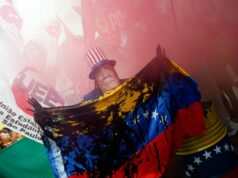On his first day back in office, President Donald Trump signed a series of executive orders which signal major shifts across domestic and international policy arenas.
These orders reflect his vision of an “America First” agenda and a commitment to swift action. They also underline the deep polarization in U.S. politics and the legal hurdles many of these actions may face in the months ahead.
Here’s a summary of a dozen of the the most impactful orders and their implications:
- Reversal of Biden-Era Policies
President Trump revoked 78 executive orders from the previous administration, including rejoining the Paris Climate Agreement. This decision underscores his prioritization of energy independence and scepticism toward international climate commitments.
Implication: Critics argue this could hamper global climate efforts, while supporters see it as a boost to domestic energy industries.
- Pardon of January 6 Rioters
In a controversial move, Trump pardoned approximately 1,500 individuals charged in connection with the January 6 Capitol riot, fulfilling a campaign promise.
Implication: The decision has sparked intense debate, with supporters hailing it as justice for political prisoners, while opponents claim it undermines accountability and rule of law.
- Immigration and Border Policies
Trump declared a national emergency at the southern border, reinstated construction of the border wall, ended birthright citizenship for children of undocumented immigrants, and resumed the “Remain in Mexico” policy.
Implication: These measures aim to curb illegal immigration but face significant legal challenges and criticism over their humanitarian impact.
- Withdrawal from WHO
Reiterating a 2020 decision, Trump initiated the U.S.’s withdrawal from the World Health Organization, citing inefficiency and bias.
Implication: Health experts warn this could weaken global health security and America’s influence in global health policymaking.
- Death Penalty Expansion
Trump ordered the reinstatement and expansion of federal executions, including seeking the death penalty for certain crimes committed by undocumented immigrants.
Implication: This move marks a sharp pivot from the moratorium on federal executions under the Biden administration and raises ethical concerns among advocacy groups.
- Federal Workforce and Inflation
Trump imposed a federal hiring freeze, ended remote work for government employees, and directed his administration to prioritize inflation reduction.
Implication: These orders aim to reduce government spending and boost economic productivity but could face resistance from federal employees and unions.
- Cultural and Social Policies
Trump signed orders reaffirming the recognition of only two genders and reversing Biden-era policies on gender identity in federal guidelines.
Implication: Advocates of LGBTQ+ rights warn this could lead to discrimination, while supporters argue it restores traditional definitions.
- Tariff Reviews
Trump ordered a review of tariffs on countries like China, Mexico, and Canada, with potential increases up to 25%.
Implication: While intended to protect U.S. industries, this could strain trade relationships and lead to retaliatory measures.
- Energy Policies
Trump revoked climate-related restrictions and expanded offshore drilling, emphasizing energy independence and resource utilization.
Implication: Environmental groups criticize these actions for their potential ecological impact, while proponents highlight job creation in the energy sector.
- TikTok Extension
Trump granted a 90-day reprieve for TikTok to find a U.S. buyer, temporarily saving the app from a ban.
Implication: While celebrated by users, the order raises questions about national security and regulatory enforcement.
- Cuba Back On Terror List
Trump revoked the Biden administration’s last-minute decision to lift the Communist-ruled island’s designation as a terrorism-sponsoring nation in return for a promise to release 553 people — including Cubans jailed in a crackdown on rare mass protests in 2021.
Implication: More suffering for Cubans already overwhelmed by a severe economic crisis and major shortage of food, medicines, fuel and other basic necessities.
12. Revocation of AI Risk Mitigation Order
President Trump rescinded a 2023 executive order by Joe Biden that mandated AI developers to share safety test results with the U.S. government before releasing high-risk systems. The order also required agencies to develop standards for AI testing and address associated cybersecurity and other risks.
Implication:
The revocation removes federal oversight mechanisms designed to mitigate AI-related threats. Supporters argue this fosters innovation and reduces regulatory burdens on tech developers. Critics warn it could expose consumers, workers, and national security to significant risks without adequate safeguards in place.
In a career spanning three decades and counting, Ramananda (Ram to his friends) has been the foreign editor of The Telegraph, Outlook Magazine and the New Indian Express. He helped set up rediff.com’s editorial operations in San Jose and New York, helmed sify.com, and was the founder editor of India.com.
His work has featured in national and international publications like the Al Jazeera Centre for Studies, Global Times and Ashahi Shimbun. But his one constant over all these years, he says, has been the attempt to understand rising India’s place in the world.
He can rustle up a mean salad, his oil-less pepper chicken is to die for, and all it takes is some beer and rhythm and blues to rock his soul.
Talk to him about foreign and strategic affairs, media, South Asia, China, and of course India.




